- Home
- Craig Schaefer
A Plain-Dealing Villain Page 5
A Plain-Dealing Villain Read online
Page 5
“Heard you came into some money,” I said. “Lucky play.”
“Lucky me, yeah. Everybody tells me I’m a lucky guy. Born lucky.”
Cameron grabbed a pair of wooden door handles and shoved them wide. The office on the other side was bigger than my old apartment. An oval cherry-wood desk sat angled toward a bank of wall-mounted televisions, each muted screen showing a feed from a different channel. Money-green carpet draped the floor, and vintage movie posters—mostly ’80s action flicks, a few signed by the stars—lined the walls.
Cameron turned, looking like he had something to say, then froze in Pachenko’s shadow. “Drink?”
“No thanks.”
“Mind if I do?”
I gave a noncommittal shrug, and he led me over to a minibar by the desk. From the looks of his collection, the local liquor store must have been running a sale on near-empty bottles. He took down a cut-crystal glass and rummaged until he found half a fifth of Southern Comfort. He filled his glass almost to the brim. No mixer, no soda, just five fingers of high-proof liquor. He tossed back a mouthful like it was tap water.
“It’s five o’clock somewhere.” He looked just embarrassed enough that I knew he had a problem. Not embarrassed enough to stop himself from topping off his glass, though.
I felt my impatience trying to get the better of me. I decided to let it. “So what’s the job?”
He blinked. “Oh. The job. Right. Nicky says you’re good—I mean, really good. He says you’re his best man.”
His best man? Wow, I was going to have words with Nicky when I got back to Vegas. For now I kept my irritation to myself.
“Depends on what you’re in the market for,” I said.
“What do you know about…stealing art?”
“That it’s strictly amateur hour, for the most part. Punks hear that a Picasso is worth twenty million, so they pull a smash and grab. Never occurs to them that a one-of-a-kind artwork might be worth twenty mil, but that doesn’t mean anyone’s going to pay ’em a dime for it. There’s exceptions. Ransoming it back to the insurance company—that can be done, but it’s risky as hell. It’s safer to cross the feds than it is to cross an insurance company.”
“But you can do it?”
“A score is a score,” I told him. “It’s not what you’re stealing, it’s who you’re stealing it from and how far they’ll go to protect what’s theirs. What are you after, anyway?”
A manila folder lay on his desk blotter. Cameron flipped it open and rested his fingers on the photograph inside, twisting it around to face me. The glossy picture made my skin crawl. Worse, I couldn’t figure out why.
It was just a knife, propped up in a wooden cabinet, with a gleam suggesting the photographer had shot it through a pane of glass. The knife had a flared, black blade like a diseased leaf. Pits and craters marred the blade’s rough face, making me think of a cold and distant moon. The handle was carved from some yellow-green stone, with the pommel forming the roaring mouth of a lion and the grip wavy like a serpent’s coils. A strip of black punch tape stuck to the bottom corner of the photo read, “Museum File 3397-8C.”
“It’s a sacrificial dagger from the Aztec empire. Carved from obsidian.” Cameron’s voice dropped, like he was whispering in a library. “Dates back to the fifteenth century.”
I tapped my fingertip against the punch tape. “Museum?”
“Not anymore. Private collector. He won’t sell.”
“You contacted him about a buy and got shot down?” I said, glancing up from the photo. “Recently? You do realize that once it goes missing, you’ll be the number one suspect.”
“Yes, I mean, no. No. I just know he won’t sell it.”
He was talking to me, but he only had eyes for Pachenko, glancing over at the slab of muscle like a schoolkid hoping for a gold star from the teacher. There was one question I’d normally never ask a client—it was bad etiquette—but I needed a better read on this guy.
“Why do you want it?”
Cameron swallowed hard. “I’m a collector, too. Mesoamerican antiquities are a…a passion of mine.”
Which was why he had an office full of movie memorabilia, where the closet thing to going south of the border was a framed poster for The Good, The Bad, and The Ugly. In my experience, people kept their passions close and loved to put them on display. Cameron? Not even a turquoise paperweight on his desk.
I wished I’d studied up on the Aztecs; I had a hunch I could stump him cold with an easy trivia question or two. One thing I knew for sure: Cameron had the cash, but his “personal assistant” and his muscle were calling all the shots around here. I just couldn’t figure out why.
“Who’s the mark?”
“Mark?” Cameron said.
“This private collector. Who is he, and where’s he keeping the knife?”
Cameron turned over the photograph. Another one waited underneath, a wide-angle shot from a telescopic lens. One man walking down a crowded sidewalk, nice suit, dark skin, and big, expressive eyes, circled in red Sharpie.
“Damien Ecko,” Cameron said. “Chicago. He owns a boutique on Jewelers Row, D. Ecko and Company. He sells custom rings, pendants, he’s big in the diamond trade.”
“How about the antiquities business?”
“Just his personal collection. He’s a buyer, not a seller. He keeps the dagger in his loft on the second floor, above the shop.”
I gave him a hard look. “You think this? Or you know this?”
“I’m certain.”
“How?”
He bit his bottom lip.
“I’ve got people,” he said. “Close to him.”
“Just not close enough to touch.”
“That’s right.”
Nothing about his story played straight. Just because my client was bogus, though, didn’t mean the job was—and neither were Cameron Drake’s lottery winnings. My better judgment told me to walk away, but Cameron had my curiosity firing on all cylinders and the smell of his money kept my feet rooted to the cash-green carpet.
I should have walked away.
7.
“Chicago’s not my usual stomping grounds,” I told Cameron, “and knocking over a jewelry store isn’t exactly low risk.”
“Twenty thousand dollars,” he said. “Paid in full when you bring me the knife.”
I ran the numbers in my head. I’d need a box man—and this would be a good chance to make things up to Coop, for Harmony Black stepping on our score the other night. I’d also want a local for a wheelman, somebody who knew the streets of the Windy City forward and back. Twenty grand on a three-way split.
“Make it thirty,” I said.
“Deal.”
I blinked. Apparently winning Powerball meant forgetting the meaning of the word haggle. Fine by me. If I didn’t take his money, somebody else would. My cut still wouldn’t be nearly enough to pay my debt to Winslow, but it’d keep him happy—and my kneecaps intact—while I lined up another job.
“One last question,” I said. “You wanted an occult-security specialist. Why? What’s he got up there?”
Cameron looked at Pachenko. No help there.
“Well,” he stammered, “it’s, um, complicated—”
“Damien Ecko is a necromancer,” Fleiss said, appearing in the doorway. She stood on the threshold with her arms crossed, shooting a dour look at Cameron. The actor must have forgotten his lines.
“You don’t say.”
“We don’t know how he’s defending his business, beyond mundane locks and alarms, but you can safely assume his…area of study will factor into it. Is that a problem?”
“I’ll need a few things,” I told her. “Specialty items. You’ll pay for my expenses, on top of the thirty G.”
“Keep good receipts.” She turned to Cameron. “Mr. Drake, it’s time for your conference call.”
Suddenly Cameron’s mask was back in place, that confident Texan swagger, and he shook my hand like he wanted to crush it. Saved by the
bell, I thought. He’s fine, as long as nobody’s asking him any questions. Poking holes in the illusion.
Fleiss hustled me back to the limo as fast as she could manage it. She wasn’t stupid. She had to know I’d figured out something wasn’t right down on Eastern Pines Ranch, but I took her poker face and shot it right back at her. We rode in silence all the way back to the plane.
* * *
When the sun went down over Vegas and the neon ignited, Fremont Street turned into a drunken carnival. The air smelled like cheap beer and stale sweat as I blended in with the milling crowds, just another anonymous face under the cherry glow of the canopy light show. Streamers of color swirled and exploded overhead, timed to the rhythm of a Beatles medley pumping out over bass-heavy speakers. My mind went slack and I let my feet carry me along, leading me to—
—sudden silence broken by the jingling of a tiny brass bell as the door to the Tiger’s Garden swung shut behind me. Every big city had its own haven for the occult underground, a place where the clued-in could talk shop without worrying about the wrong word landing in the wrong ear. The Garden had an extra layer of protective camouflage: the only way to get there was not to look for it.
The odors of the street gave way to the rich aroma of fresh-baked naan and curry wafting through the tiny restaurant. The decor was 1970s chintz, from the cigarette-burned orange carpet to the ratty paper lanterns dangling over the tiny tiki bar in the back, and heavy wooden shutters shrouded the windows. There was an unspoken agreement among the regulars that nobody should peek behind those shutters. Given that the Garden was only vaguely connected to the real world, I think we were happier not knowing what was out there.
Jennifer had already commandeered our usual table in the corner, her tattooed arm lazily draped over the back of a chair while she bit into a scarlet slice of tandoori chicken. Mama Margaux, draped in a white frock and nursing a tall glass of rum punch, sat beside her. I walked into the room and killed the conversation.
“Something I said?” I asked, wandering over.
Margaux and Jennifer shared a look.
“Just talking some business,” Jennifer said.
“Since when do you two do business?”
Margaux crossed her arms. “Some people respect what I’m capable of.”
Amar, the Garden’s sole employee—that we knew of—stepped up alongside me with a brass-rimmed tray. One Crown and Coke, mixed to perfection. I took the glass, nodded my thanks, and he disappeared into the kitchen again. You never had to order at the Garden; Amar already knew what you wanted, usually a few minutes before you arrived.
“You’re still mad at me about the Enclave thing.” I sagged into a chair on the far side of the table.
“You benched me, Danny.”
“I needed to make sure Bentley and Corman were safe—”
“They could have gotten here themselves,” Margaux said. “Their legs weren’t broken. You benched me. I could have helped in that fight.”
“The stakes were too high, Mama. Hell, I didn’t even want to bring Jennifer. I didn’t want to risk your life, any of your lives, going up against that…thing. Given what Lauren was capable of, I couldn’t take that chance.”
Margaux’s brows knitted as she took a long sip from her drink.
“Ain’t your decision to make,” she muttered. “We’re either family or we’re not.”
Jennifer stretched languidly and shook her head. “Nothin’ wrong with feeling protective, sugar, but it’s a matter of trust.”
I slid my fingertip around the rim of my glass.
“I’m sorry.” I looked up at Margaux. “I fucked up, okay? You’re right. It wasn’t my decision to make, and if you wanted to be on the front lines, I should have let you. It’s not…it’s not that I think you’re not capable, okay? There just aren’t a whole lot of people in my life who matter to me. When it comes to the ones who do, hanging on to that is more important to me than anything.”
Margaux studied her fingernails. “Hmph. Apology accepted.”
“I suppose Bentley and Corman are pissed at me, too?”
Jennifer flashed a smile. “Hell, they’re just glad we put Meadow Brand down like Old Yeller. That was pretty much a community service kinda killin’, any way you slice it.”
“I wish Agent Black felt that way.” I paused, something occurring to me. “Hey, Mama, let me make it up to you. I’ve got a job. One night, in-and-out kinda deal, and the mark’s a necromancer. Just your kind of problem. You want in? I’ll split my take with you.”
“Means a lot that you’d offer, but no. Jenny’s keeping me busy this week. Besides,” Margaux said, glancing up at the ceiling, “she pays better.”
“Doing what?”
“Just a little fail-safe,” Jennifer said, “in case a certain somebody gets too big for their britches.”
“And speaking of Nicky,” I said.
“More useless than nipples on a bull.”
“You’ve gotta stop baiting him, Jen. You’re pushing too hard—”
One eyebrow shot up. “More like I spent years gettin’ pushed when I never shoulda let him get away with it in the first place. You’ve got an ear to the ground. You know well as I do that Nicky’s on his way out one way or another. Either he’s gonna cut his losses and run to Rio with a suitcase full of cash, or one of his own guys is gonna take him for a ride before Nicky can talk to the feds.”
“Then let it play,” I told her. “If you’re so sure, then cool your jets and let it play. You know what Nicky’s like. When he gets nervous, bodies drop. And he’s plenty nervous right now. You need to pull over into the slow lane, keep your head down, and see what—”
The door jingled. I turned, expecting to see Bentley and Corman rounding the corner.
“Well, look who we have here,” Harmony Black said with a smile.
Margaux pursed her lips and rested her hands in her lap, under the table. Jennifer narrowed her eyes to razor slits.
“What are you doing here?” I asked. Harmony walked over, dropping into an open chair at our table. Amar swooped in, his tray bearing a can of Diet Coke, a glass filled halfway with ice, and a paper-wrapped straw.
“Having a drink, obviously.” Harmony took the can and glass and tossed a couple of singles onto Amar’s serving tray. He bowed deeply and faded into the kitchen.
“This is a private club,” Jennifer said.
“Right. A private club for magicians only. I’m a magician.” Harmony cracked the can open and poured her soda over the ice. The silver bangle on her wrist glittered. “So. Jennifer Juniper. Haven’t seen you since, oh, your last arrest. How’s the narcotics business?”
“Who, me? I’m a florist.”
Harmony’s gaze swung my way. “Have fun in Texas today, Faust?”
“I wouldn’t know.”
“Sure you would. You flew in and out of Henderson Executive on Cameron Drake’s private jet. You are so predictable, you know that? Drake’s some rube who wins the lottery, and not even a year later, he’s spending money like it’s his full-time job. Perfect target for a grifter like you. What kind of scam are you running on the poor schlub? Worthless real estate? Bogus stock investments? Or maybe you’re playing up the magic-man angle. Let me guess: his money is cursed, and only you can cleanse it.”
I almost protested my innocence. Then I got a better idea. I shrugged. “You’re just not gonna cut me a break, are you?”
“Not until you’re behind bars where you belong.” She looked over at Margaux. “And you are?”
“Leaving,” Margaux said, pushing her chair back. “Danny, call me. I’ll send you off with a goody bag. For that thing we talked about.”
Jennifer followed her out, glaring daggers at Harmony the whole way. The door jingled behind them. I sipped my drink.
“I like this place,” Harmony said, taking a long look around the empty restaurant. “Nice ambiance. I think I’ll start coming here every night.”
I fished in my wallet, pulled out
a five-dollar bill, and tossed it on the table between us.
“What’s this?” she asked, eyeing the bill.
“A bet. You think you’ve got it all figured out, huh? Put your money where your mouth is.” I leaned in toward her and lowered my voice. “Five bucks says I get my hands on Cameron Drake’s money, and you can’t stop me.”
She mirrored me, getting nice and close.
“Just try it. You won’t even make it on the flight to Austin.”
“Five bucks.”
She hesitated for a moment, then smiled.
“I don’t gamble when I’m on duty, Faust. And I’m always on duty. Keep your money. You’ll need it for buying cigarettes in the prison commissary.”
I left the cash on the table and walked out, letting the world fade as I neared the door, whisking myself out in a blur of mental static. Suddenly I was on Fremont again, keeping pace with the tourist traffic under the whirling lights, as if I’d never left.
As usual, Harmony knew too much for her own good. This time, though, she’d taken a handful of puzzle pieces and put together the wrong picture. It wouldn’t take long for her to figure out where she’d gone wrong, but in the meantime, her mistake—thinking Drake was my target instead of my client—was the only edge I had.
I could work with that.
8.
I found Coop at his usual watering hole, an eastside pool hall called Della’s. A pack of bikers played eight ball through a haze of stale cigar smoke, and the backs of their leather vests displayed a skeletal eagle swooping in for the kill. Winslow’s crew. I kept to the edge of the room, keeping it casual, making sure their boss man wasn’t with them before I made my way over to the bar. That was one conversation I didn’t want to have tonight.
Coop sucked on a longneck bottle of Bud, staring listlessly at sports replays on the TV behind the bar. I swung up onto the stool next to him, and he gave me a bleary-eyed nod.
“Watch yourself,” he said. “Those boys from the Blood Eagles are feeling feisty tonight. They already stomped some tourist into a mudhole after he tried hustling ’em at pool. You know Winslow’s been asking about you, wanting to know where you’re at.”

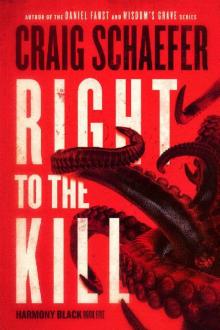 Right to the Kill (Harmony Black Book 5)
Right to the Kill (Harmony Black Book 5)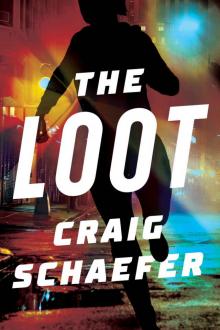 The Loot (Charlie McCabe Thriller)
The Loot (Charlie McCabe Thriller)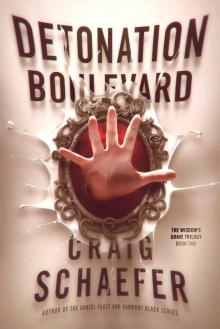 Detonation Boulevard
Detonation Boulevard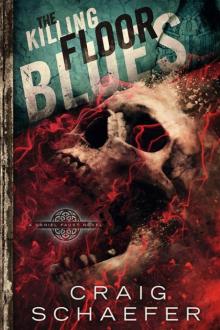 The Killing Floor Blues (Daniel Faust Book 5)
The Killing Floor Blues (Daniel Faust Book 5)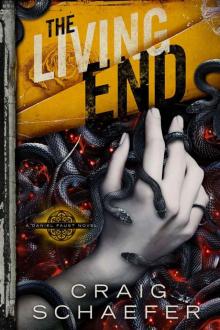 Daniel Faust 03 - The Living End
Daniel Faust 03 - The Living End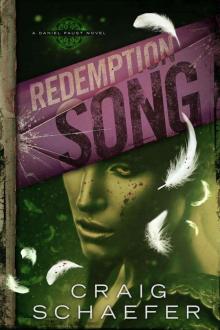 Redemption Song (Daniel Faust)
Redemption Song (Daniel Faust)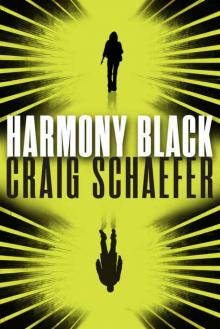 Harmony Black (Harmony Black Series Book 1)
Harmony Black (Harmony Black Series Book 1)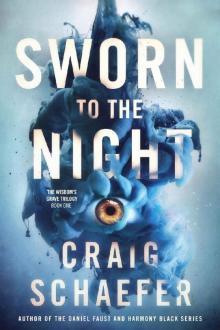 Wisdom's Grave 01 - Sworn to the Night
Wisdom's Grave 01 - Sworn to the Night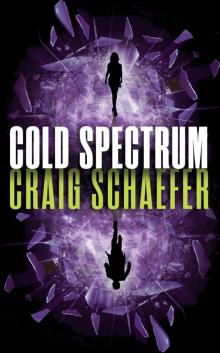 Cold Spectrum
Cold Spectrum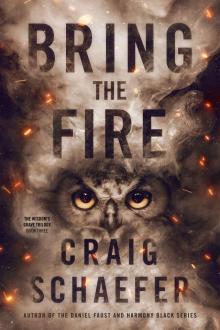 Bring the Fire (The Wisdom's Grave Trilogy Book 3)
Bring the Fire (The Wisdom's Grave Trilogy Book 3)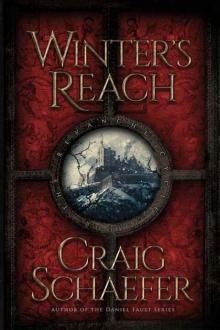 Winter's Reach (The Revanche Cycle Book 1)
Winter's Reach (The Revanche Cycle Book 1)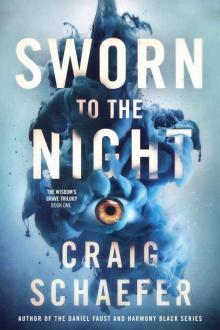 Sworn to the Night (The Wisdom's Grave Trilogy Book 1)
Sworn to the Night (The Wisdom's Grave Trilogy Book 1)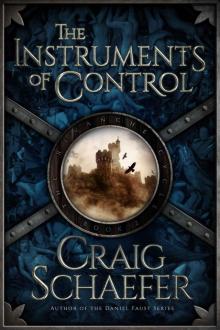 The Instruments of Control (The Revanche Cycle Book 2)
The Instruments of Control (The Revanche Cycle Book 2)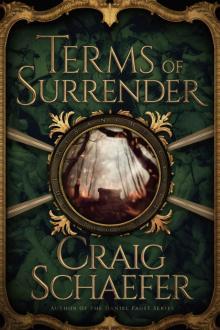 Terms of Surrender (The Revanche Cycle Book 3)
Terms of Surrender (The Revanche Cycle Book 3)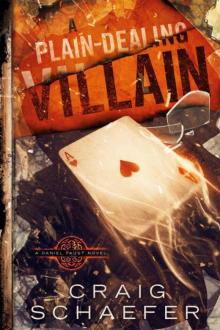 A Plain-Dealing Villain
A Plain-Dealing Villain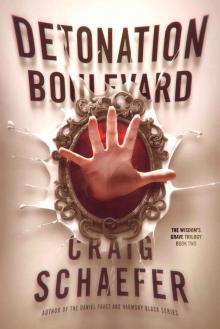 Detonation Boulevard (The Wisdom's Grave Trilogy Book 2)
Detonation Boulevard (The Wisdom's Grave Trilogy Book 2)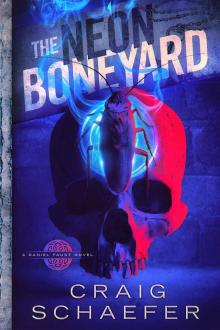 The Neon Boneyard
The Neon Boneyard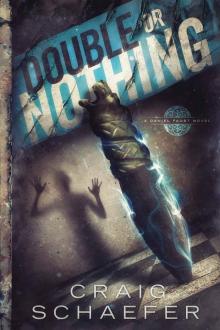 Double or Nothing (Daniel Faust Book 7)
Double or Nothing (Daniel Faust Book 7)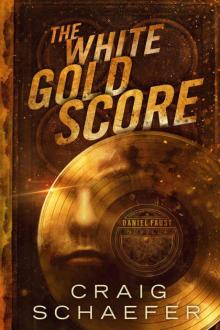 The White Gold Score (A Daniel Faust Novella)
The White Gold Score (A Daniel Faust Novella)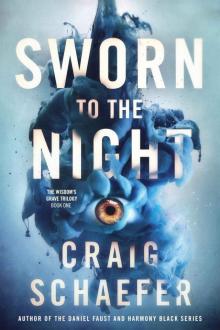 Sworn to the Night
Sworn to the Night